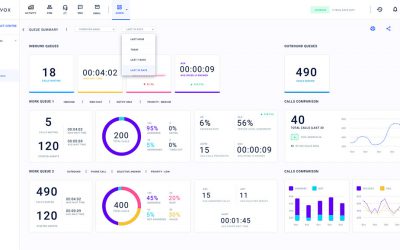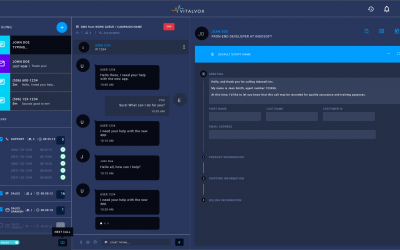Remote Call Centers’ Impact

Remote call centers’ impact has become increasingly significant, particularly in response to the COVID-19 pandemic. As businesses adjust to these changing conditions, it is essential to examine the benefits and drawbacks of remote call center operations. In this article, we will explore the pros and cons, address the unique challenges posed by the pandemic, and offer strategies for effectively managing remote call center teams.
Benefits of Remote Call Center Work
Flexibility and Convenience
First and foremost, remote work allows call center agents to work from the comfort of their homes. This flexibility often results in higher job satisfaction and a better work-life balance, which can, in turn, boost productivity.
Cost Savings
Moreover, maintaining a physical call center can be expensive due to rent, utilities, and equipment costs. Remote work can eliminate many of these overhead expenses, thus leading to significant savings for businesses.
Larger Talent Pool
Additionally, without the constraint of location, businesses can access a wider talent pool. This enables them to hire agents with specialized skills and diverse backgrounds, thereby enhancing the quality of customer service.
Business Continuity
Furthermore, remote call centers are more resilient during unforeseen disruptions, such as natural disasters or health crises. The COVID-19 pandemic underscored the importance of having a robust remote work infrastructure.
Drawbacks of Remote Call Center Work
Isolation and Engagement
On the other hand, remote work can lead to feelings of isolation among call center agents. Maintaining team cohesion and employee engagement can be challenging when everyone is dispersed.
Technological Challenges
Additionally, ensuring that remote agents have the necessary technology and a stable internet connection can be a logistical hurdle. Technical issues may disrupt customer service.
Security Concerns
Similarly, handling sensitive customer data remotely raises security concerns. Therefore, companies must implement robust cybersecurity measures to protect customer information.
Supervision and Monitoring
Finally, supervising and monitoring agent performance in a remote setting can be more difficult. New tools and strategies are required to ensure accountability and maintain service quality.
Effective Management of Remote Teams
Clear Communication
To begin with, establishing transparent communication channels keeps remote teams informed and engaged. Regular team meetings and one-on-one check-ins foster a sense of connection.
Technology Investment
Next, investing in reliable communication and collaboration tools facilitates seamless interactions between remote agents, supervisors, and customers.
Performance Metrics
Additionally, implementing key performance indicators (KPIs) and performance monitoring tools helps track agent productivity and service quality. Regular feedback sessions can help agents improve their performance.
Training and Development
Moreover, providing ongoing training and professional development ensures that remote agents stay current with industry trends and best practices.
Employee Well-being
Finally, prioritizing the well-being of remote agents by addressing concerns related to isolation and burnout is crucial. Encouraging work-life balance and offering mental health support as needed can make a significant difference.
Conclusion
In conclusion, remote call centers’ impact offers many advantages, especially in today’s dynamic business environment. However, it also presents unique challenges that require thoughtful consideration and proactive management. By weighing the pros and cons and implementing effective strategies, businesses can successfully navigate the remote call center landscape, delivering exceptional customer service while supporting their remote teams.
Contact Us
For more insights on managing remote call center teams or to explore our software solutions, reach out to us today. Our experts are here to help you optimize your call center operations and enhance your customer service experience.
Categories
- Agent Performance & Training
- AI solutions
- Asterisk
- Business Growth
- Call Center Performance & Productivity
- Call Center Software Platform
- Call Center Technology & AI Integration
- Call Center Training
- Call Center Workforce Management
- Call Monitoring
- Cloud-Based Solutions
- Customer Experience
- Data Security
- General
- Insights
- Integrated Customer Service
- News
- Omnichannel Communication Strategy
- Omnichannel Support
- Quality Assurance
- Tech


